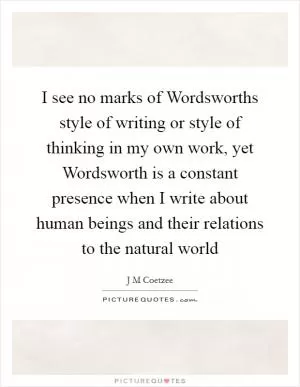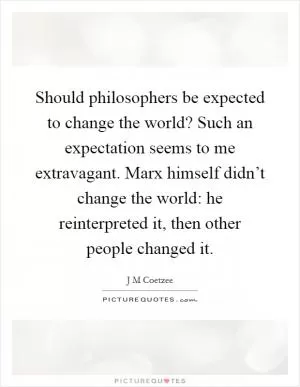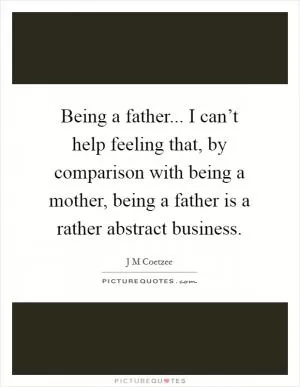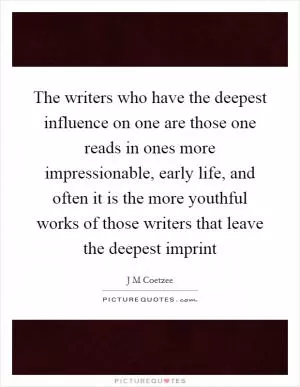And anyway, I suspect he secretly liked it when a woman was cold and distant

And anyway, I suspect he secretly liked it when a woman was cold and distant
In the world of J.M. Coetzee's novels, the dynamics between men and women are often fraught with tension and power struggles. The quote, "And anyway, I suspect he secretly liked it when a woman was cold and distant," speaks to a recurring theme in Coetzee's work - the complex and often dysfunctional relationships between men and women.Coetzee's male characters are often portrayed as being drawn to women who are emotionally distant or unattainable. This can be seen in novels such as "Disgrace" and "Waiting for the Barbarians," where the male protagonists are captivated by women who are aloof, mysterious, or emotionally unavailable. In these relationships, the women hold the power, leaving the men feeling vulnerable and exposed.
The quote also suggests a certain masochistic tendency in the male characters, as they seem to derive pleasure from the emotional distance and coldness of the women they desire. This dynamic can be seen as a reflection of the power imbalances and gender dynamics that permeate Coetzee's work. The men in his novels often struggle with feelings of inadequacy and powerlessness in the face of strong, independent women.
Furthermore, the quote hints at the idea of desire and longing being intertwined with pain and suffering. The male characters in Coetzee's novels seem to be drawn to women who are emotionally distant precisely because it causes them pain and frustration. This masochistic tendency adds another layer of complexity to the already fraught relationships between men and women in Coetzee's work.
Overall, the quote, "And anyway, I suspect he secretly liked it when a woman was cold and distant," encapsulates the themes of power, desire, and dysfunction that run through J.M. Coetzee's novels. It speaks to the complex and often troubled relationships between men and women in his work, and the ways in which these relationships are shaped by issues of power, control, and emotional vulnerability.












 Friendship Quotes
Friendship Quotes Love Quotes
Love Quotes Life Quotes
Life Quotes Funny Quotes
Funny Quotes Motivational Quotes
Motivational Quotes Inspirational Quotes
Inspirational Quotes